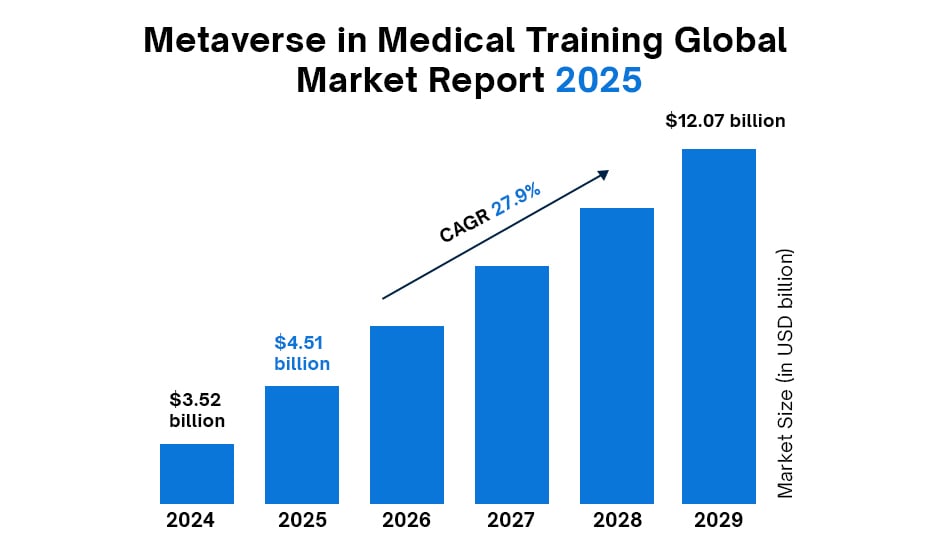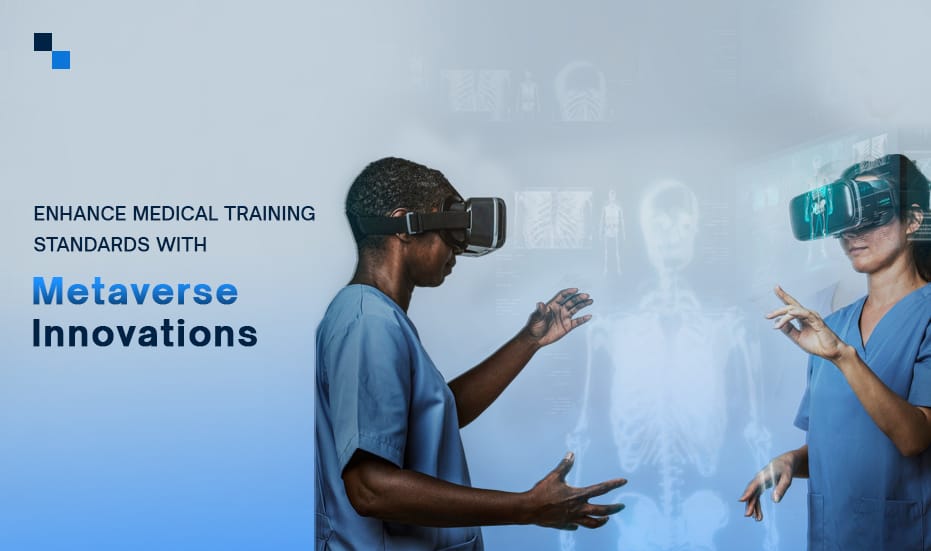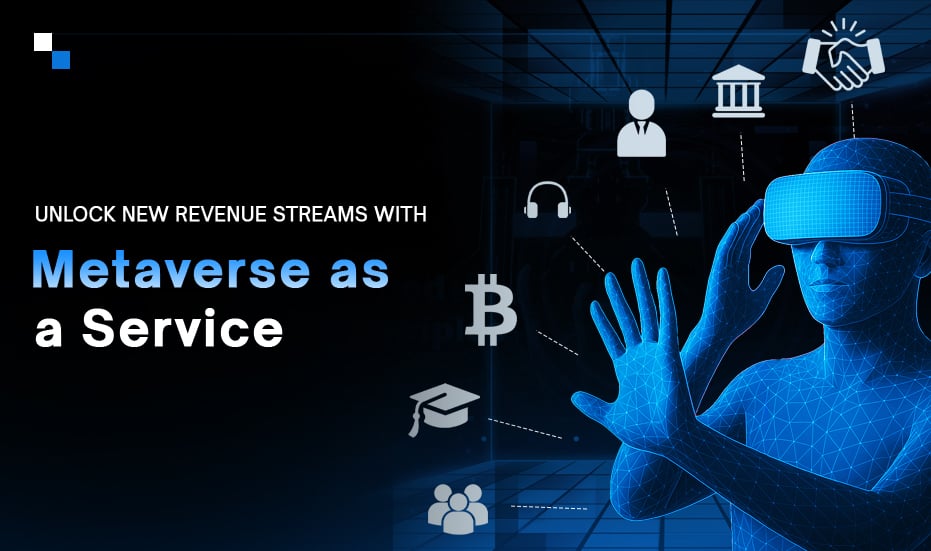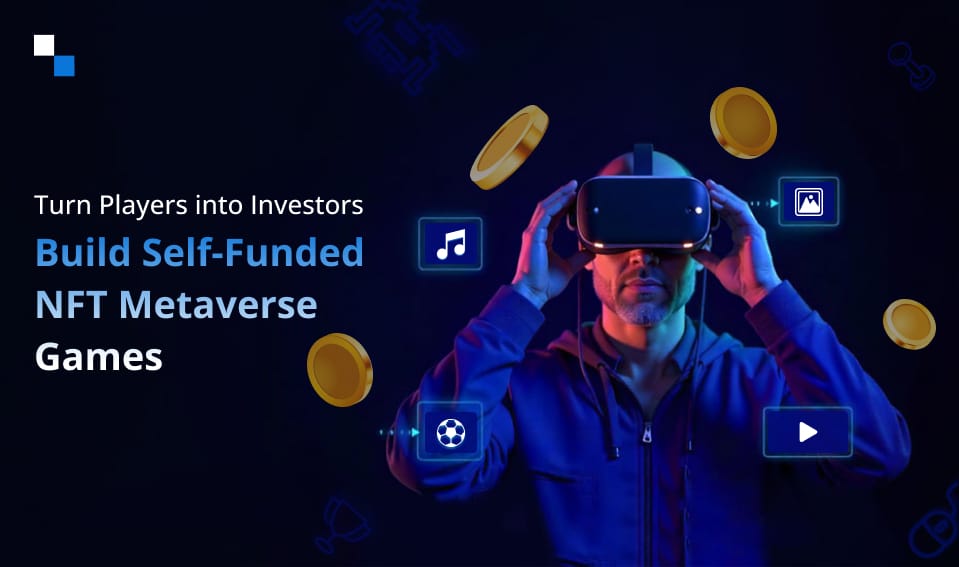
DePAI Explained: Understanding the Next Frontier of AI and Robotics
April 10, 2025
AI Agents for Healthcare: Transforming Patient Care and Operational Efficiency in 2025
April 10, 2025In an age where innovation is not just expected but demanded, the convergence of healthcare and the metaverse stands as one of the most promising revolutions of the 21st century. While once the term “metaverse” conjured images of avatars and gaming landscapes, it now signals a far more significant shift, especially in the realm of healthcare. Healthcare in the metaverse is no longer a futuristic concept; it’s an emerging reality with tangible implications for businesses, institutions, and healthcare systems globally.
For healthcare providers, training institutions, med-tech enterprises, and corporate learning platforms, the opportunity is immense. This article explores the rich intersection of virtual technology and healthcare training through a detailed business lens. Let’s get started.
Why Should Healthcare Businesses Focus on Metaverse-Based Training?
The business case for embracing metaverse healthcare development is compelling. The metaverse in the medical training market is set to surge from $3.52 billion in 2024 to $4.51 billion in 2025 at an impressive CAGR of 28.3%. This explosive growth trajectory is forecast to propel the market to $12.07 billion by 2029, achieving a robust CAGR of 27.9%.

Traditional training models are expensive, logistically complex, and often inconsistent across institutions. A virtual environment eliminates these barriers. It creates consistent, on-demand training modules that can be accessed anytime, anywhere. With the integration of analytics, AI, and biometric feedback, businesses can also track progress, assess performance, and personalize learning journeys for individual practitioners.
Let’s not forget the competitive edge. Early adopters of healthcare in the metaverse will define the gold standard for training excellence, not just within their institutions but across the industry. Whether improving onboarding, enhancing patient safety, or scaling operations across geographies, the metaverse provides a new paradigm for healthcare competency. And if you’re concerned about returns, consider this: Medical training through metaverse platforms has the potential to reduce costs by 30–50% while increasing retention and performance. This isn’t just transformation; it’s smart business.
How Metaverse Healthcare Development Addresses Current Challenges in Medical Training?
Despite significant advancements in medicine, the way we train healthcare professionals remains largely rooted in 20th-century models. A typical journey for a medical student or clinician-in-training includes didactic lectures, textbook-based learning, limited simulation exposure, and eventual hands-on experience in clinical settings. However, these steps are not always aligned with real-world demands, and the consequences, ranging from preventable errors to reduced efficiency, are costly, both in human and financial terms.
Let’s break down the major pain points.
1. Limited Simulation Capacity
Medical simulations using mannequins, standardized patients, or cadavers are costly, time-consuming, and geographically bound. Once a scenario is over, there’s no instant replay, no do-over, only feedback after the fact. Moreover, hospitals and universities often have limited access to high-fidelity simulation centers, especially in low-resource or rural settings. This is where metaverse healthcare development shines; by offering persistent and immersive environments, it drastically improves access and consistency.
2. Passive Learning Models
Traditional medical education is largely passive. While objective structured clinical examinations (OSCEs) and simulations help, they cannot fully replicate real patient interactions, stress conditions, or multidisciplinary collaboration. The transition to healthcare in the metaverse reimagines learning as a fully active, gamified, and adaptive experience, reinforcing both procedural memory and situational awareness.
3. Scalability and Standardization Issues
Not all students are trained equally. Institutions vary widely in resources, faculty expertise, and case exposure. As a result, two students graduating from different institutions may have vastly different competencies. Here’s where the metaverse changes the equation. A single virtual module can be deployed across thousands of learners globally, ensuring every individual gets access to the same high-quality training, customized feedback, and performance analytics.
4. Mental Health and Empathy Training Gaps
Another critical gap is in training practitioners to empathize with patients, particularly those facing chronic illness, aging, or mental health conditions. Through immersive virtual reality scenarios, trainees can now step into the shoes of a patient with Parkinson’s or dementia. Once again, metaverse healthcare development leads the way by offering patient-perspective training modules that cannot be replicated elsewhere.
Healthcare in Metaverse Development: Key Technologies & Tools
The success of integrating healthcare in metaverse with medical training hinges on a robust ecosystem of technologies and tools that support data-driven experiences.
1. Virtual Reality (VR) and Augmented Reality (AR) Platforms
At the core of the metaverse lies virtual reality (VR) and augmented reality (AR), which serve as gateways to immersive learning environments. High-resolution headsets, haptic feedback devices, and spatial computing engines provide realistic simulations that allow trainees to navigate 3D reconstructions of operating rooms, emergency scenarios, or patient interactions. Metaverse healthcare development is thus redefined by these sensory-rich tools that transform theoretical knowledge into visceral, measurable experiences.
2. Immersive Simulation Engines
Simulation engines are the software backbone of this ecosystem. They integrate physics simulations, dynamic scenario scripting, and real-time performance analytics to reproduce complex medical procedures in a controlled, virtual environment. These engines allow for endless modifications to scenarios, so learners can practice healthcare in metaverse repeatedly until mastery is achieved. The depth and flexibility of these simulation engines signify the progress in metaverse development and underscore how strategic investments in simulation software can accelerate practitioner readiness.
3. Artificial Intelligence and Analytics
AI is transforming the quality and personalization of medical training in the metaverse. Predictive analytics assess decision-making processes and determine proficiency levels while offering tailored guidance. As a result, trainees receive immediate, constructive feedback that enhances skill acquisition. The combination of metaverse health development with AI-driven insights also ensures that simulation exercises remain current with evolving clinical guidelines and best practices.
4. Blockchain for Credentialing and Security
With blockchain, institutions can confidently share and verify credentials, fostering greater trust and cross-institutional collaboration. This is a core aspect of metaverse healthcare development, where data transparency ensures that every practitioner’s competency is both auditable and immutable.
5. Collaborative Virtual Platforms
Networking and communication tools are integral to fostering collaborative learning experiences. Multi-user platforms enable teams of trainees to engage in joint simulations, collaborative diagnostics, or interdisciplinary case studies—mimicking the real-world environment of clinical teamwork. This ecosystem engenders a shared learning environment where practitioners learn from one another’s expertise while navigating the intricacies of team-based patient care. The collective potential of healthcare in metaverse is realized when these platforms integrate seamlessly with VR, AR, AI, and blockchain tools.

Real-World Applications of Metaverse Healthcare Development
Let’s explore real-world applications that are already reshaping training practices, patient simulations, and continuous education. By harnessing the power of immersive experiences, institutions have found new ways to address gaps in traditional methodologies. Healthcare in metaverse strategies provides transformative solutions that align educational outcomes with clinical realities while reducing risk and cost.
1. Surgical Simulations
Surgical procedures are complex, requiring an intimate understanding of anatomy, precision, and the ability to manage unexpected complications. Virtual surgical simulations through metaverse healthcare development allow surgeons to practice rare or high-risk procedures repeatedly without the cost or ethical constraints of human trials. By replicating surgical scenarios with high fidelity, these simulations train practitioners in coordination, timing, and crisis management.
2. Emergency Response Training
The metaverse, with its capacity to generate unpredictable and varied scenarios, provides an ideal platform for emergency response training. Trainees can virtually experience chaotic environments, practice triage, and coordinate effectively under pressure, bolstering their resilience and strategic planning in actual emergencies.
3. Medical Diagnostics and Patient Interaction
Virtual simulations in the metaverse enable practitioners to engage with a diverse range of patient cases, some common, others extremely rare. These simulated patient interactions hone diagnostic skills and enhance bedside manners. Trainees can learn to interpret complex diagnostic imaging, correlate clinical signs with patient history, and practice communicating difficult news effectively through healthcare in metaverse practices.
4. Interdisciplinary Collaboration Scenarios
The metaverse healthcare development provides integrated platforms where multidisciplinary teams, comprising surgeons, radiologists, nurses, and pharmacists, can train together. These environments allow for collaborative decision-making, scenario debriefings, and immersive case reviews, which closely mirror actual hospital workflows.
ROI for Businesses: Cost Savings and Scalability
One of the primary concerns for businesses considering transformative technology is the return on investment. In the context of medical training, the adoption of virtual platforms in the form of healthcare in the metaverse is proving to be a sound financial decision, offering cost savings and scalability.
1. Cost Savings
The major cost benefits from metaverse healthcare development arise from three core areas:
- Infrastructure Reduction: Physical simulation centers, hospital training rooms, and even cadaver labs come with overhead costs. Transitioning to virtual environments minimizes these expenditures. After an initial investment in the platform and training module development, subsequent sessions require minimal incremental costs.
- Travel and Logistics: With virtual platforms, participants no longer need to travel long distances or rearrange their schedules to attend on-site training. This not only saves money but also reduces the time lost in transit, ultimately boosting productivity.
- Reusable Modules: Updates to modules can be centrally managed and pushed to all users simultaneously, ensuring that every practitioner benefits from the latest advances in healthcare in metaverse methodologies. Each update is an embodiment of continuous improvement, leading to long-term savings and streamlined training budgets.
2. Scalability
Scalability is a cornerstone benefit for businesses using virtual training platforms. Here are some key points:
- On-Demand Training: Virtual modules are accessible 24/7 and can accommodate any number of users without the constraints of physical space.
- Rapid Expansion: New training scenarios or modules can be easily created and deployed. This allows educational institutions or corporate training departments to keep pace with evolving medical standards and technologies, reinforcing the ethos of metaverse healthcare development initiatives.
- Global Collaboration: Virtual platforms dismantle geographic barriers, offering a truly global classroom for medical professionals. This interconnectedness encourages knowledge sharing and elevates the overall standard of training through cross-institutional practices.
Innovate Clinical Learning with Metaverse Healthcare Development Experts
The convergence of advanced technology with the timeless pursuit of medical excellence is creating an era of unprecedented opportunity. For businesses and institutions prepared to invest in healthcare in metaverse advancements, the benefits are multifold: reduced costs, scalable training models, enhanced compliance, and, perhaps most importantly, a revolution in the way healthcare professionals learn and interact. By embracing metaverse healthcare development, organizations stand at the forefront of a movement that is redefining professional learning and ultimately raising the standard of patient care worldwide. Connect with our dedicated team of professionals at Antier, an industry leader in metaverse development. Our innovative solutions and bespoke services are designed to help your organization harness the full potential of virtual training environments.



